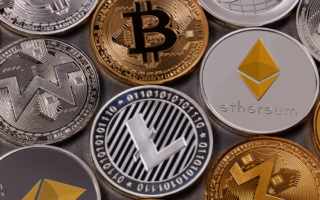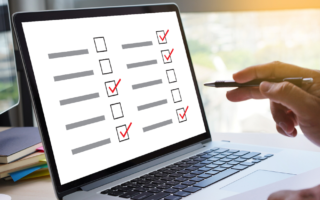A small mistake, like missing an automatic payment, can trigger a snowball of overdraft fees. Once your balance drops below zero, each transaction incurs another fee, often leading to debt. With average fees around $34, a minor error can quickly become costly.
Debit cards are convenient, offer instant access to funds, and are widely used, making them a popular financial tool. However, they come with risks like fraud and hidden fees that can leave you vulnerable.
Here’s a critical warning for debit card users and advice on making smarter financial decisions. Debit cards are considered to be the order of the day in the present digital world.
The Growing Dangers of Using a Debit Card
A debit card gives direct access to your checking account, so any fraudulent transaction impacts your balance immediately. This is unlike credit cards, which somehow stand between the fraudulent activities and your money being lost.
Debit cards leave your money more open to risk. With increasingly digital financial systems, the rate of online fraud, skimming, and data breaches keeps going up. It is really important to realize that not all the protections credit cards offer are provided by debit cards.
How to Understand Debit Card Fraud
Debit card fraud is increasing as cybercriminals grow more sophisticated. Since debit cards pull directly from your account, losses can be immediate, and many mistakenly believe banks will resolve issues quickly, but it’s often more complex.
If your debit card is stolen or hacked, money is immediately taken from your account. While it may be reinstated, it could take weeks or months, causing overdraft fees and missed payments. Some banks offer zero-liability policies, but they aren’t guaranteed and are often slower than credit card processes.
How Debit Card Skimming Works
Debit card skimming, common at ATMs and fuel stations, involves devices that steal your card info. Fraudsters can then clone your card and make purchases, often before you notice any issues.
Skimming incidents are growing exponentially these days; the National Association for Convenience Stores reports that fraud from skimming costs U.S. consumers millions of dollars every year. Always check card readers for suspicious attachments, cover your PIN when entering it, and monitor your account for unauthorized activity.
Hidden Fees: The Silent Drain on Your Finances
Another hidden danger in using debit cards is the prevalence of hidden fees. Many debit card users assume they are, therefore, spending money that they have; they therefore will face no fee. Unfortunately, this is not always the case. Some banks charge to use out-of-network ATMs, while others may have inactivity fees if you are not using your account often enough.
Another place fees can add up is in international use. If you are a big traveler, your bank could charge you a foreign transaction fee each time you use your debit card abroad. While small, these add up over time and have the potential to be a serious chew into your budget without you ever realizing it.
No Credit Building: An Opportunity Lost
Unlike credit cards, transactions by debit card do not help to establish any credit history. While a debit card will keep you from going into debt, it is not helpful in terms of your credit score. This is a missed opportunity for young adults and others who try to establish credit with only a debit card.
Building up a good credit score is important for most of life’s major decisions, such as buying a house or a car. Using a credit card responsibly can be a good way to build your credit while still keeping spending in check. That doesn’t mean you should never use debit cards, but it’s worth considering how they fit into your overall financial strategy.
Dispute Protection: Why Credit Cards Have the Upper Hand
Another area where debit cards fail terribly is in dispute protection. The biggest advantage to credit cards is the fact that they tend to have more advanced dispute protections, as cardholders can simply file a chargeback and their issues will be solved in record time. The added security could very well save you time, money, and stress in the long run.
Overdraft Fees: The Costly Penalty for Small Mistakes
A common and costly issue for debit card users is overdraft fees. Banks often automatically enroll customers in overdraft protection, covering transactions when funds are low but charging high fees for each overdraft, which can quickly add up.
A small mistake, like missing an automatic payment, can trigger a snowball of overdraft fees. Once your balance drops below zero, each transaction incurs another fee, often leading to debt. With average fees around $34, a minor error can quickly become costly.
READ MORE: Causes of Financial Problems in Business
Your Bank’s Liability
Don’t Assume You’re Fully Protected Most people assume that no matter what happens with their debit card, the bank has got their back. And while banks do have some regulations they must adhere to-for instance, reimbursing fraud victims-the protections just aren’t as vast as they are for credit cards.
Take federal law, for instance. If you have a debit card, you have to report fraudulent activity within two business days to cut off your liability at $50. You could be on the hook for $500 in losses if your wait is longer—say, up to 60 days. After 60 days, you may be liable for the entire amount.
This is in particular contrast with credit cards; federal law limits liability owing to unauthorized charges to no more than $50, regardless of when the fraud is reported.
Limited Rewards
How You’re Not Getting Any Perks with Them Another drawback of a debit card involves the rewards; most lack them. Many credit card companies give cash back, travel points, and even other incentives for the average purchases. Most debit cards have little to no rewards, meaning you’re losing out on several chances to get nice perks just by using your card.
Under rewards-based credit cards, frequent flyers accrue points that can be redeemed for flights, hotel stays, and much more. Even casual travelers benefit from cash-back credit cards offering moderate yet reliable savings on items used daily. Each of these benefits is lost whenever anyone opts for a debit card instead, savings that, over time, can add up to a formidable sum.
The False Security of Debit Cards
They can also make their holders feel a little too secure. Many people believe that since the card is linked to their own money, they are in turn automatically protected from the risks one faces while borrowing. Reality is slightly more complicated: no credit checks and immediate deductions of funds may feel a little safer, but at the same time, that leaves you at the mercy of fraud and financial mishaps.
If you dispute a purchase made with a debit card, you have limited options. You’re subject to your bank’s policies, which may not be quick or helpful in processing chargebacks. Because credit cards have protective layers, most of the people who use debit cards feel financially vulnerable.
Alternative Payment Methods: Smarter Ways to Pay
Considering the risks and downsides of debit cards, it is worthwhile to see alternative methods of making payments. Credit cards, for example, boast fraud protection that is superior, better rewards, and can be an effective way to build up your credit. They do need to be used responsibly, however, so as not to fall into debt.
For people who would not prefer using credit cards at all, digital wallets like Apple Pay or your PayPal gives an extra layer of security in not necessarily exposing your actual debit card number when making a purchase. Of course, another option is prepaid cards. These have many of the conveniences of debit cards without the risks of overdraft fees and major drains on your checking account.
Keeping Your Debit Card Safe: How to Use It More Safely
If using a debit card is still something you would prefer, there are ways you can protect yourself from fraud and financial loss. First, regularly check your account for unauthorized transactions and report it immediately upon detection of anything out of the ordinary. This will keep you ahead of any fraud that might be going on and limit your liability.
It would be even wiser not to use a debit card for online purchases, considering the higher risks of data breaches. Otherwise, one may go for a credit card or some sort of digital wallet when paying online. And finally, you are welcome to sign up for alerts through your bank so that you receive a notification each time your card is used and catch any fraudulent charges before they spiral out of control.
Smarter Management of your Finances
These cards give you convenience and quick access to your funds, but they also contain several risks in their use-a factor that every user needs to know about. From exposure to fraud cases to hidden fees, the pitfalls which may just hit your financial security are many.
Understanding these risks and moving to smarter methods of payment, whether through credit cards, digital wallets, or other alternatives, will go a long way in better protecting your finances and helping you make wiser decisions.
Frequently Asked Questions
How can I protect my debit card from fraud?
The best way to secure your debit card from fraud is to avoid using it at high-risk places such as the filling station, and the ATM without excellent security features. Regular monitoring of the account should be done and alerts on any kind of transaction.
What if my debit card is stolen?
If your debit card is stolen, contact your bank immediately. Your liability might be limited by how fast you act, but it can take several days or even weeks to recover money lost.
Do debit cards help build credit?
No, spending on a debit card doesn’t help build credit. To derive a credit score, you need to take out credit through a credit card or take out a loan and pay that back in time.
Can I dispute a charge on my debit card?
You can dispute a charge on your debit card; however, it is quite often more complicated than it is with credit cards. You will need to work through your bank, and it may be longer before a resolution is reached.
Which is Better for Travel, Credit Card or Debit Card?
Generally, credit cards are better for travel because of their fraud protection, travel rewards, and reduced liability in case of theft or fraud. A debit card might expose you to higher fees with lesser protection.
What should I do if I suspect debit card fraud?
Immediately report suspicious transactions to your bank; cancel your debit card and request its replacement. The quicker you do this, the less liability you will have for unauthorized charges.




